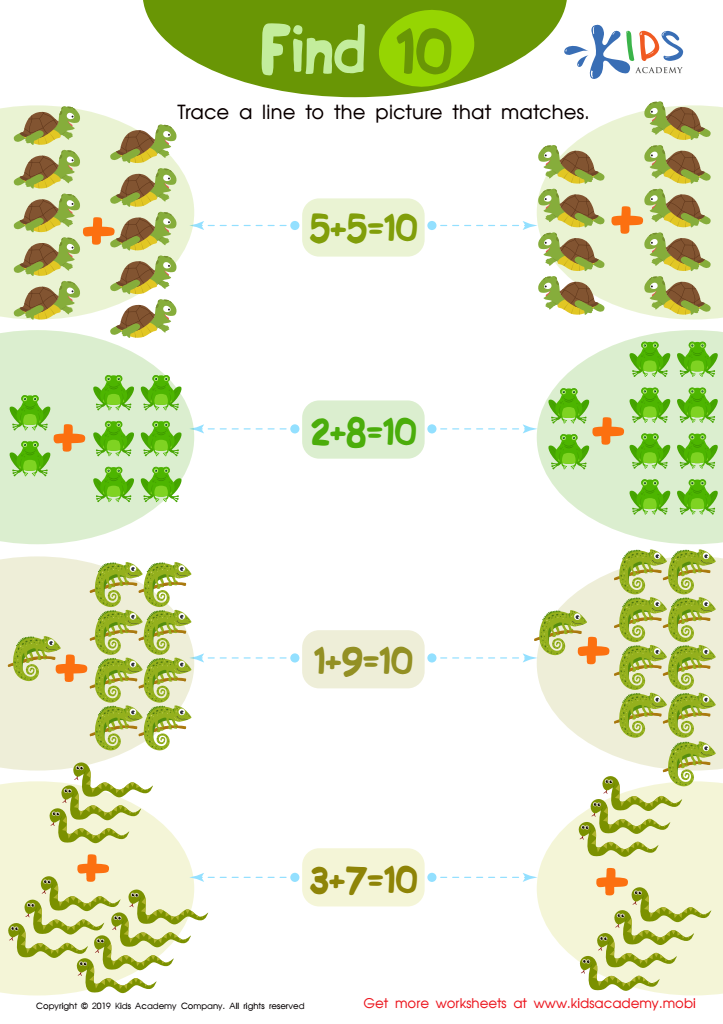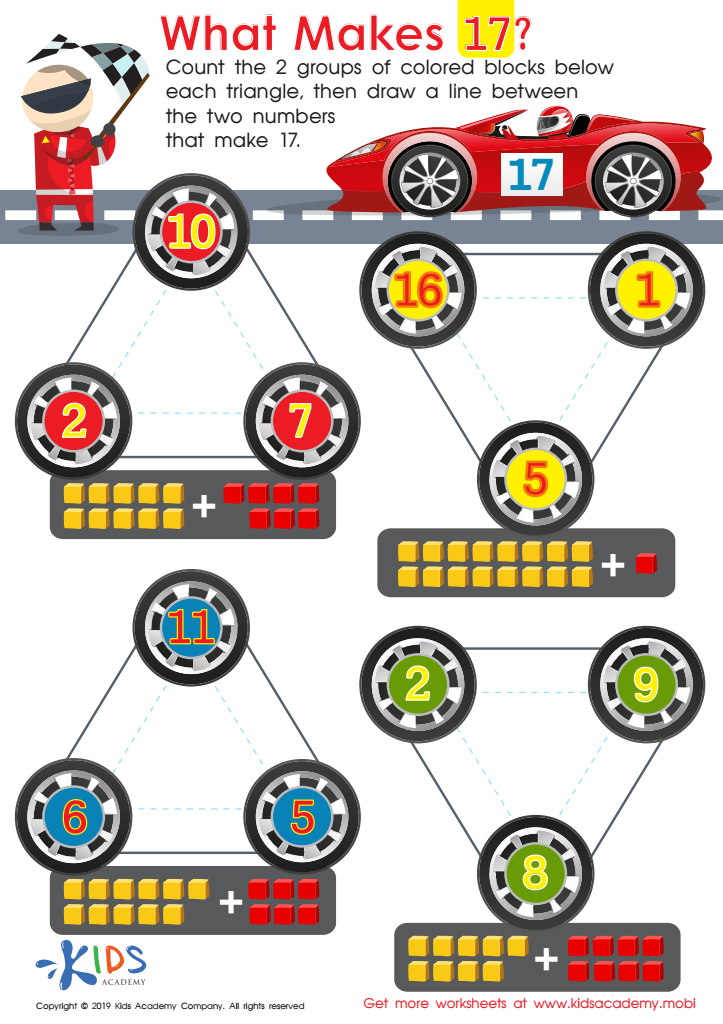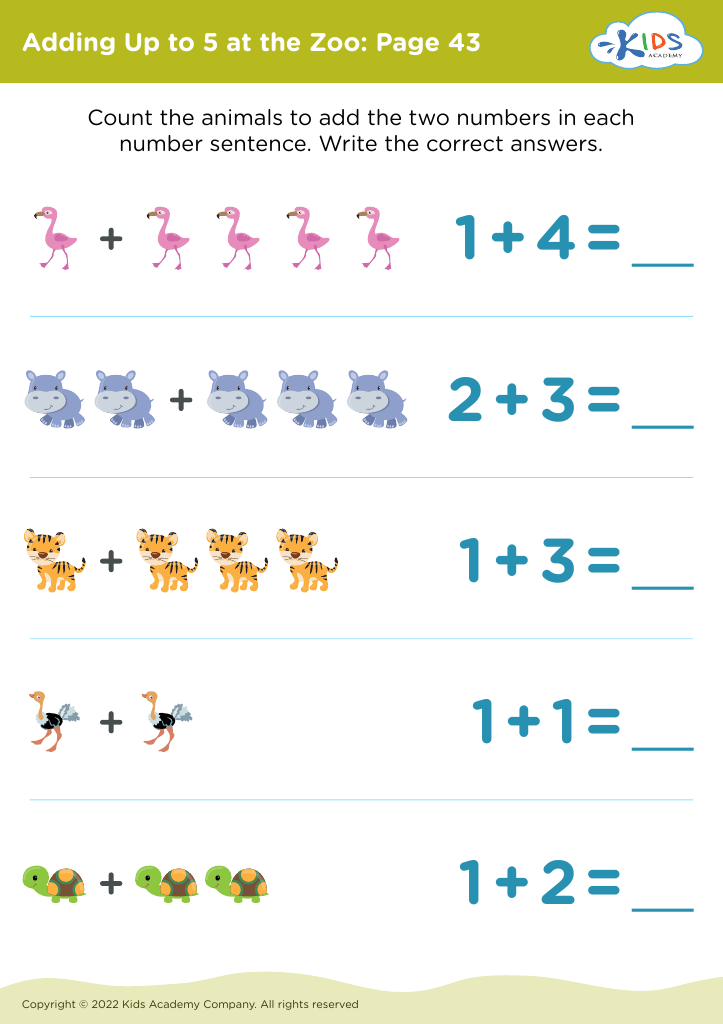Mathematical thinking Addition & Subtraction Worksheets for Ages 4-5
3 filtered results
-
From - To
Discover our engaging "Mathematical Thinking: Addition & Subtraction Worksheets" tailored for children aged 4-5! These thoughtfully designed worksheets help young learners build foundational math skills through fun and interactive activities. Kids will explore basic addition and subtraction concepts, enhancing their problem-solving abilities and boosting their confidence in math. Our colorful, age-appropriate worksheets make learning enjoyable while helping to develop critical thinking skills. Perfect for both classroom and at-home practice, these resources foster a love for math in early childhood education. Equip your little ones with the tools they need to succeed in math with our delightful worksheets today!


Find 10 Worksheet


What Makes 17 Worksheet
Parents and teachers should care about mathematical thinking, specifically addition and subtraction, for children ages 4-5 because it lays a crucial foundation for lifelong learning and cognitive development. During these formative years, children are naturally curious and eager to explore, making it an ideal time to introduce basic mathematical concepts. Learning addition and subtraction enhances problem-solving skills and logical reasoning, enabling children to make sense of the world around them.
Understanding these operations at an early age fosters confidence and a positive attitude towards math, which can influence their future academic achievements. Children learn to recognize patterns and relationships between numbers, facilitating critical thinking skills that are fundamental to their overall educational journey. Additionally, using engaging activities and hands-on experiences cultivates a more profound and lasting grasp of these concepts.
Moreover, integrating math into daily life—such as counting items, sharing snacks, or measuring ingredients—connects learning to real-world situations, making math relatable and enjoyable. When parents and teachers prioritize mathematical thinking, they help nurture well-rounded individuals prepared for more complex concepts in later grades, instilling a strong foundation for success in both academics and life.
 Assign to My Students
Assign to My Students




















